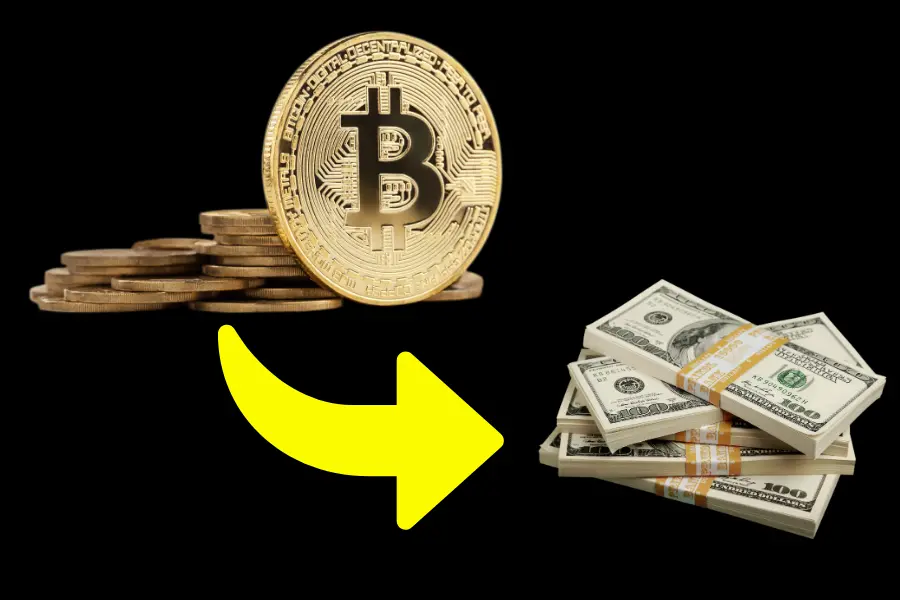It is no news that in recent times, Ukraine has been at loggerheads with its sister nation, Russia. Amid the unrest, the Ukrainian government has resorted to taking drastic measures to prevent the massive outflow of money by placing heavy barriers on cryptocurrency purchases across the nation.
The stabilization of the currency is particularly important at this time when the country is plagued with high levels of inflation. The lingering of the war has further led to stagflation- a combination of slow economic growth and unemployment. This has left the government saddled with the responsibility of figuring out how to prepare for stagflation.
This decision was taken as a result of the outflow of about 1.7 billion dollars out of the Ukrainian central bank in March and an additional 900 million dollars early in April. This prompted the country’s government to take frantic steps to protect the economy and foreign exchange market of the country amid the still lingering war in order to mitigate its effects.
This Bitcoin ban is currently implemented under martial law, which has been in effect since the war with Russia started.
Following this, the national bank of Ukraine announced newly decided restrictions on cryptocurrency purchases and related operations in a public statement. According to the new decree, an individual is no longer allowed to buy Bitcoin using the Ukrainian national currency, the Hryvnia.
This simply means that citizens are only permitted to buy Bitcoin and other digital coins using other foreign currencies apart from the Hryvnia. Asides from this ban, the Ukrainian central bank also implemented a monthly limit of cryptocurrency exchange to about 3,300 dollars for each individual.
The purchased cryptocurrency can then be converted into cash through quasi cash transactions like electronic wallet deposits, purchase of virtual assets, and international peer-to-peer transactions. It should be noted that this Bitcoin ban is only temporary and will be lifted when the economy improves.
Many Ukrainian banks have put the recently announced restrictions in full swing, as several banks have been reported to restrict their customers from buying cryptocurrency with Hryvnia.
Is This Counter-Productive?
The new decree has gathered a lot of reactions from the crypto universe. This is because the government of Ukraine had, amidst the war, legalized cryptocurrency as a legal tender last month. It was reported that Ukraine traded more cryptocurrencies than fiat at one point, before the Russian invasion.
The official crypto legalization bill was passed on the 18th of February. Crypto enthusiasts worldwide were pleased with this announcement as it marks a big step forward for the cryptocurrency industry.
It is no surprise then that the sudden Bitcoin ban came as a shocker. The Ukrainian government has since the invasion, received a massive amount of crypto donations from around the world through nothing less than 120,000 different crypto assets.
The assets were collected through wallet deposits in the Bitcoin and Ethereum wallet links provided by the country via Twitter. The country has received over 150 BTC, and 2,200 ETH since the wallets have been opened.
The numbers of both incoming and outgoing transactions are being monitored using the BTC block explorer for the Bitcoin wallet and the Ethscan explorer for the Ethereum wallet.
Despite the usefulness of crypto to Ukraine’s economy, the central bank of the country is agitated that the large amounts of money being moved out of the economy will cause a strain on the economy.
In order to prevent a massive meltdown of the economy, Ukraine hopes that the newly placed restrictions will stabilize the economy and help to stabilize its currency.
The Way Forward
Since the beginning of the war, Ukraine has relied heavily on the once ignored cryptocurrencies. It has been used as a means of funding the resistance to the invasion by Russia.
The funds collected so far from the fundraising have been used to fully support the military. A fraction of it has also been used for humanitarian purposes. The donation involving cryptocurrency has several benefits as compared to conventional fundraising techniques. Some of such benefits are that cryptocurrency transfers are fast, efficient, and typically finalized within minutes.
This is advantageous as compared to the traditional banking technique, which can take between several hours to one day, especially amidst the ongoing war.
Crypto is also not influenced by geopolitical, third-party, or governmental factors; it is a completely decentralized system.
According to a prominent member of the Ukrainian government, inflation has really eaten deep into the nation. He went further to say that it will take a long while for the country to recover from the devastating effects of inflation. According to him, the country may not return to normalcy till the second half of the year 2023.
The deputy minister has said that when Ukraine is able to overcome Russia and emerge victoriously, the entire country will be rebuilt using blockchain technology as a backbone.
The Ukrainian president, Zelenskyy, has also passed a law that provides a comprehensive legislative template that guides the use and operations of cryptocurrency in the country.
As the country is in the middle of figuring out how to prepare for stagflation it is no doubt that cryptocurrency has been a major helping hand. It has played a major role in providing support and funding for continued resistance to the Russian invasion.
The Ukrainian government is trying so hard to put measures together to stabilize the economy. One of such measures is the recent ban on an individual’s right to buy cryptocurrency with the country’s national currency.
It is not clear how easily the Ukrainian economy will bounce back from the drastic effects of the ongoing war. But what we do believe is that crypto is here to stay.






